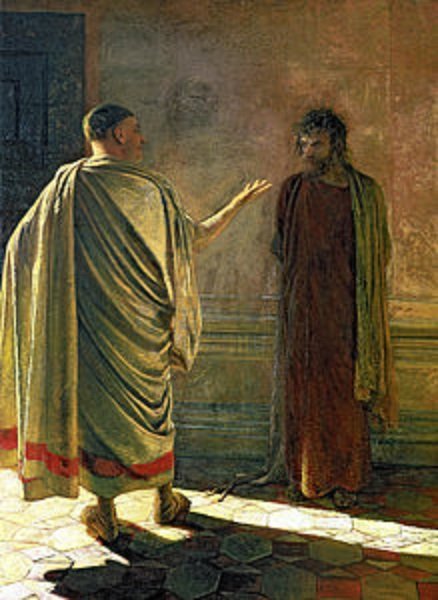The Problem of the Christian Philosophy. The place of philosophy in christianity /part 3 /
Finally, the very part about the disclosure of things that concerns irrational objects, essentially supernatural, which are of interest in practice as well as philosophy. Above all, the philosophy in her Christian version is attracted to theology as a means of clarifying these secrets, and there is no way not to grasp the new paths beyond its own. So even when she works for herself her information field is expanding considerably. She gets information about the feelings of natural science, so how can I not get information about the divine of faith and theology? "The facts about religion and the accepted dogmas - after being recognized - are my attempts, Malbranz said, I use my mind in the way that those who study physics use it." In this way, he raises the movement of Christian thought, although he mistakenly combines philosophy and theology with another, and denies the inability of philosophy to establish itself in this area of experience that dominates it. They have often noted that without reflection on dogmas, the Trinity and the Incarnation have little chance of being able to understand the metaphysical problem of the person through philosophy.
Let's say more. In itself, the philosopher's experience has renewed Christianity. The availability of this is the world of the creation of God-Word, in which everything speaks of endless intelligence ending with reason you know they are reason. What a bright source! There is something like a fraternal relationship to things, I say this, even considering that they are recognizable, and that with their contemplation we are bound to the Christian Middle Ages, which, as it turns out, has prepared, on the one hand, the flowering of experimental natural science and another, the flowering of refiective knowledge, the pride of the modern world. Finally, it is important to draw with Gabriel Marcel a conclusion that the significance of the discovery of the dignity is absolutely transcendent in terms of any experience capable of building on a purely human basis and creating a paradoxical, crisis situation for the mind. It is then that there is no credible Christian philosophy except that "in which the paradox, the crisis is not only accepted or even accepted, but is firmly connected with the lost head and not knowing the limit of gratitude.
On the contrary, from this moment, when philosophy, in the course of a long process, tries to soften the crisis, obscure the paradox, reveal the exalted fact in the dialectics of reason or the pure spirit, it is precisely from that moment that it ceases to be Christian. " From this point of view it can be said that Christian philosophy "finds its ontological starting point" outside and over the sphere of philosophy "in this single, supposedly, non-analogous fact that is the Incarnation." And it will not be overwhelming to assert that in the heavens for souls is a vital impulse that stimulates such a philosophy, it is "a reflection of the implications and consequences of all the arrangements of this dignity, not only impenetrable but also contrary to the superficial needs of reason. "Metaphysical thinking, thus turned to its true spirituality, will criticize these demands" for the sake of higher demands, "in the name of purely intelligent requirements," which the faith in incarnation makes capable of fully realize yourself ... "

I find myself wondering after reading this: by this standard, is Descartes a Christian philosopher for separating and speaking distinctly about the physical and the spiritual, or is he not, precisely because he attempts to integrate the two into a single basis for arriving at clear and distinct truths?
Posted using Partiko Android
Very incredible.
To listen to the audio version of this article click on the play image.

Brought to you by @tts. If you find it useful please consider upvoting this reply.